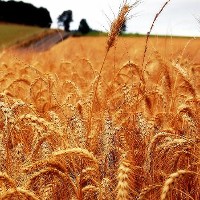29 November 2016
Global food security aided by combining different methods
A global team of scientists used two different simulation methods and one statistical method to predict the impact of rising temperatures on global wheat production, and all came to similar estimates.
This finding, published in a study in the journal Nature Climate Change, is critical in predicting how much wheat and other crops we’ll need to feed the world, said Senthold Asseng, a professor of agricultural and biological engineering at the University of Florida, USA and leader. IIASA researcher Christian Folberth also contributed to the study.
Predicting crop yields is important because rising temperatures tend to keep fruits, vegetables and other crops from growing as well as they should, Asseng said.
“This means we’re closer to more precisely predicting crop yields and their response to climate change worldwide, but we have shown this only for wheat, so far,” Asseng said. “It’s the first time that a scientific study compared different methods of estimating temperature impacts on global crop production. Since the different methods point to very similar impacts, it improves our confidence in estimating temperature impact on global crop production.”
Global food demand is expected to increase 60 percent – with 9 billion people by the middle of the 21st century, according to a 2012 study by the Food and Agriculture Organization of the United Nations. One critical crop that helps feed the world is wheat. Globally, China produces the most wheat at about 265 billion pounds per year, while the United States produces about 132 billion pounds, according to the same UN organization.
This study is a part of AgMIP – the Agricultural Model Intercomparison and Improvement Project, which brings together agricultural scientists from around the world to research climate change impacts and adaptation options.
Text adapted from the Institute of Food and Agricultural Sciences at the University of Florida
Reference



